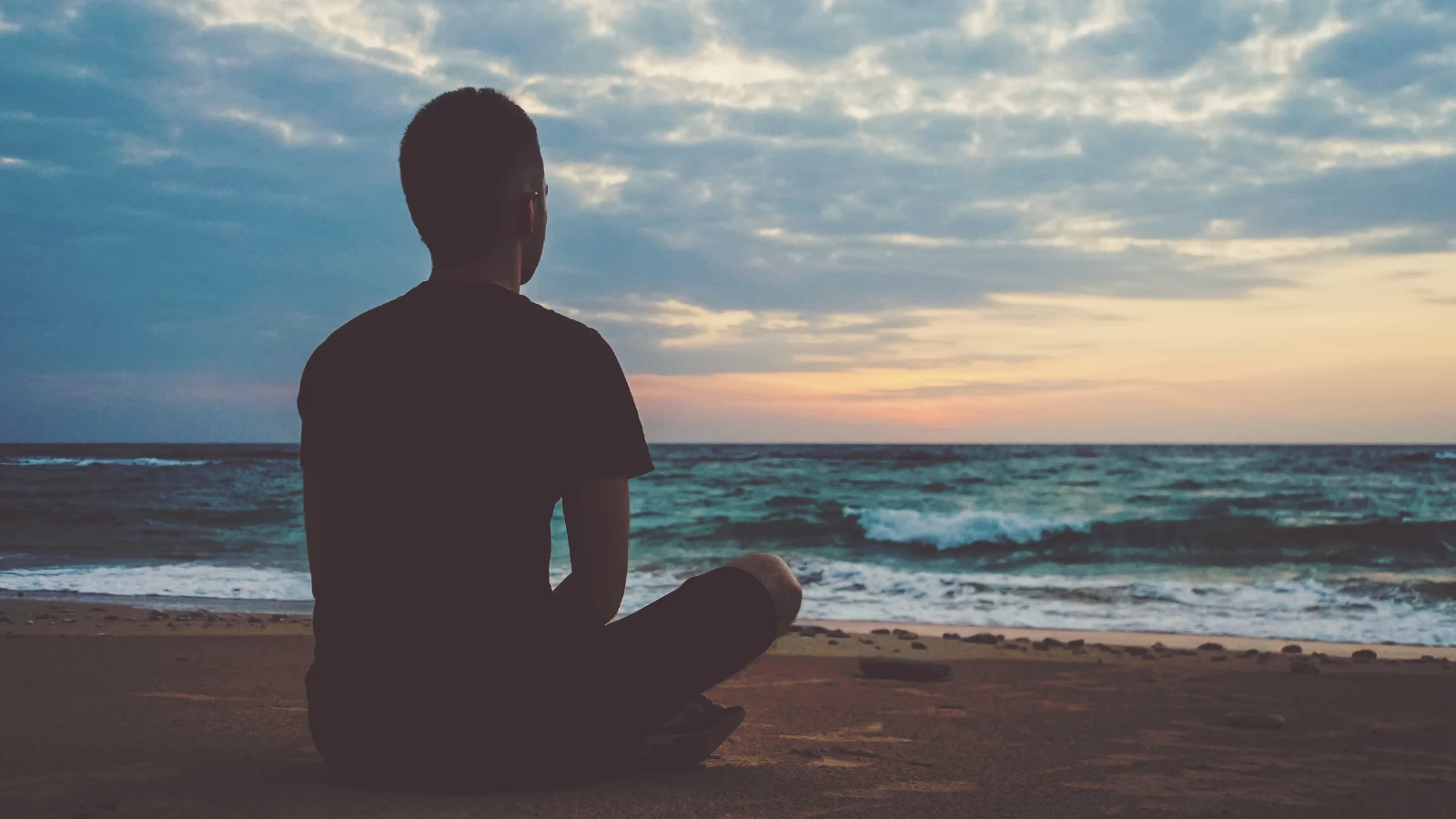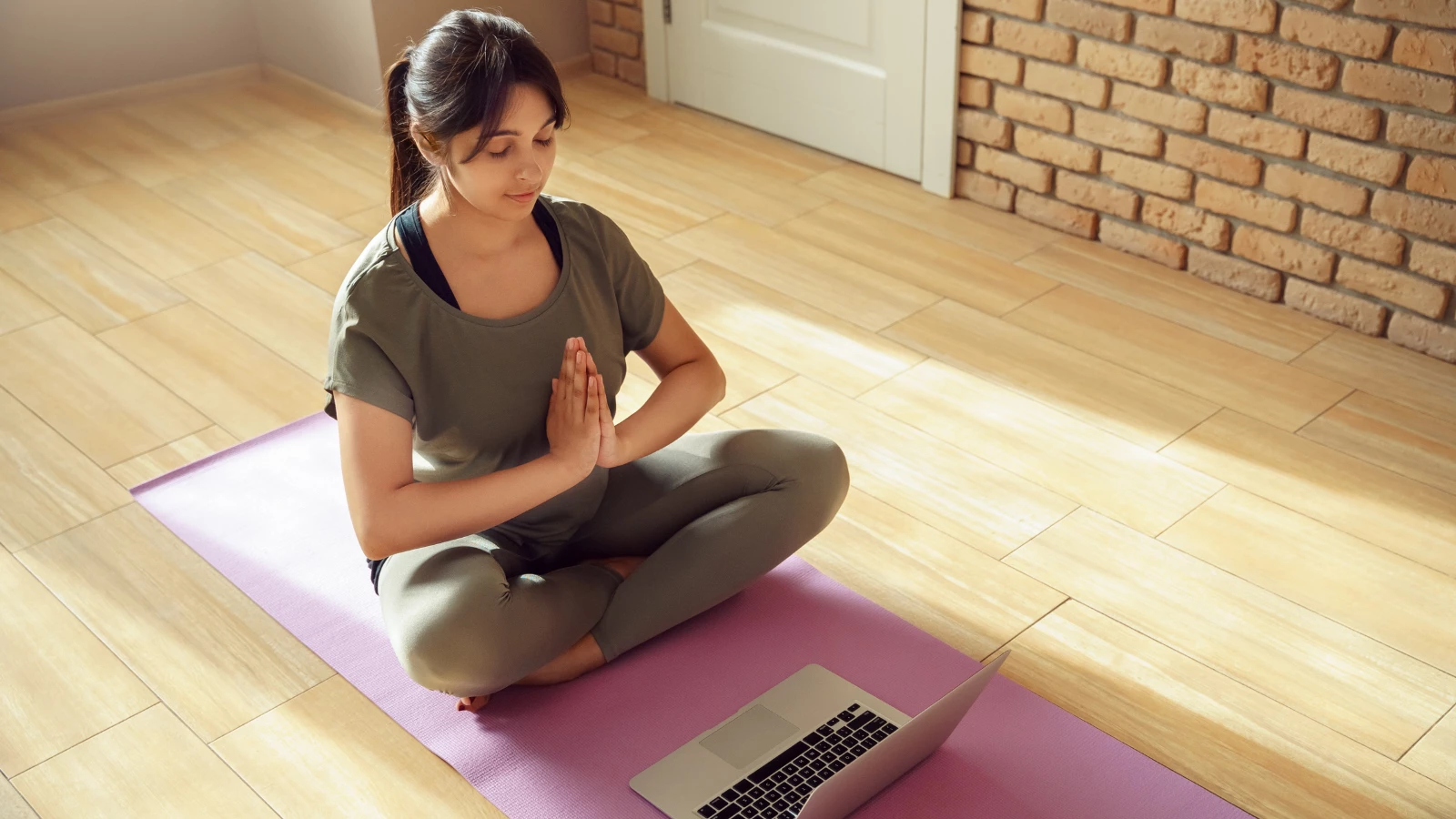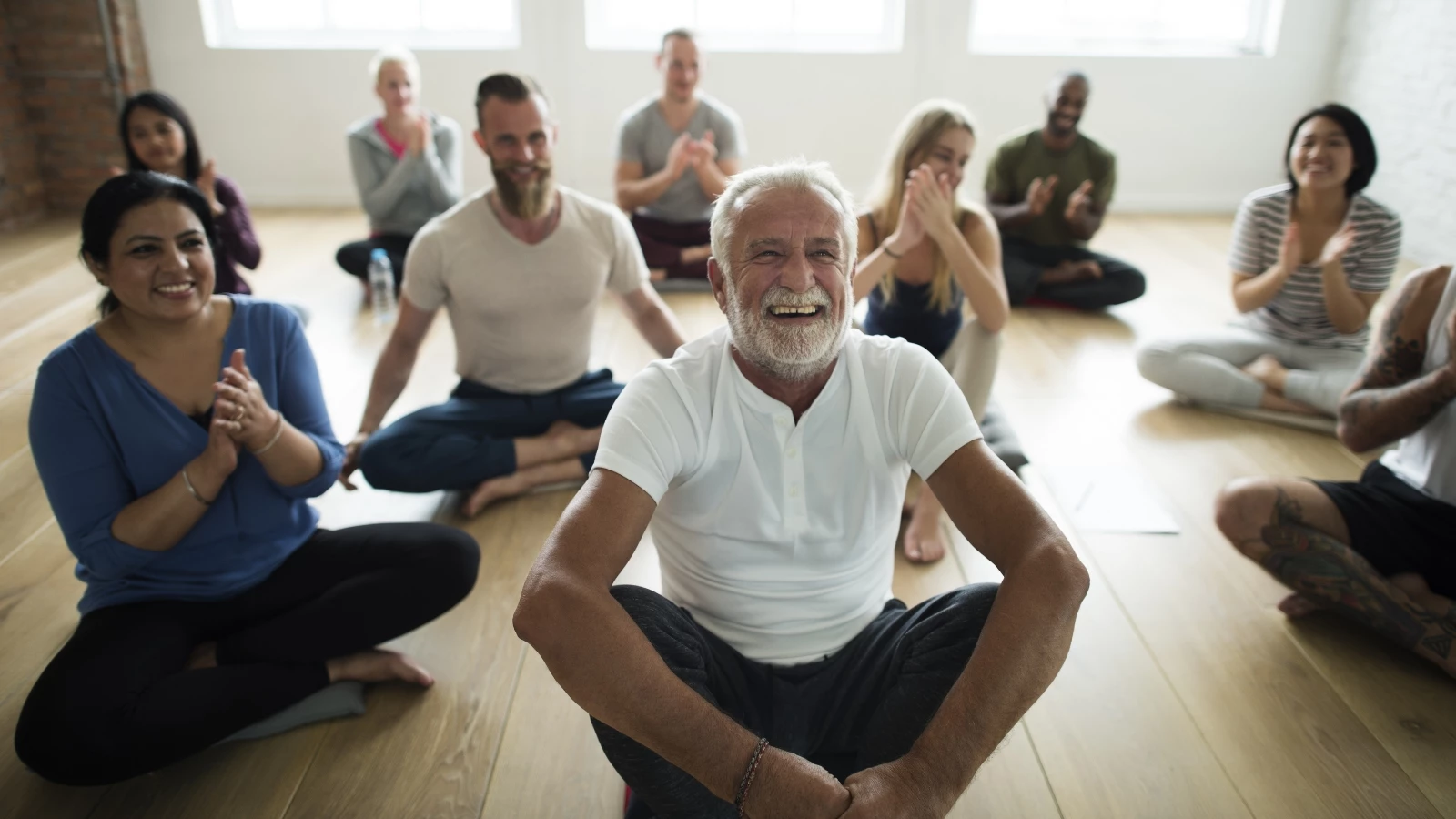What Could Post-COVID Yoga Look Like?

Recent research has revealed that over the course of millions of years, five different animals have separately evolved into crabs. Yes, you read that right, five different kinds of animals went through their own evolution and all ended up like crabs. It’s astounding to consider that crabs are so effective and efficient evolutionarily that different animals have become crabs or crab-like.
This research made me reflect on the human condition and our tendency to recreate unresolved issues in our personal lives––don’t we end up marrying someone just like one of our parents, or literally becoming our parents as we age? It also reminds me of the tendency for civilizations to repeat history. Any student of history can’t help but see the parallels between the recent U.S. government and the pre-World War II Nazi government.
It seems like an unavoidable aspect of human nature is that we are destined to repeat our past mistakes. I wonder if there’s something similar happening in the yoga world? I sure hope not. The history of yoga in the West provides too many examples of yoga empires built on manipulation and abuse. The most recent examples are Bikram, Ashtanga, Sivananda Vedanta, and Kundalini, which have all had major abuse scandals in the last few years. Are we destined to repeat this history, or can we find another way forward post-COVID, where we engage with our practice effectively enough to see through our samskaras (the mind’s tendencies)?

In 2020, the biggest yoga chain in the world, YogaWorks, declared bankruptcy. “The COVID-19 pandemic has created unprecedented challenges for our industry and business, including mandatory studio closures and social distancing-imposed attendance restrictions even where studios have been permitted to reopen,” said Brian Cooper, Chief Executive Officer of YogaWorks.
Honestly, that’s the least of the damage that’s happened through the pandemic. What about the fact that almost all independent yoga studios are permanently closed, and most yoga teachers are out of work?
The Incompatibility of Yoga and Capitalism

The question is: Can the demise of the modern yoga studio offer an opportunity to build something new in its place, or are we destined to recreate the same issues that plagued the industry before the pandemic? Those issues include a lack of accessibility, racism, abuse, and unaddressed cultural appropriation. These issues all stem from a system based on greed and profiteering, rather than a system built on the foundational yoga teachings.
In other words, the yoga industry became a hollow shell, serving up a form of practice divorced from the philosophical and moral foundations of the very thing it was purportedly selling. The yoga industry became a crab––it evolved into that same form that our greed and selfishness often recreate: a system built on profit and bottom lines.
The thing is, the yoga teachings are completely at odds with capitalism. You literally can’t sell yoga. You can sell the fancy accouterments that go alongside it, you can sell a body type that really has nothing to do with it, but you can’t sell yoga. You can sell time in a room with a teacher, books, and online courses, but yoga is free.
How to Build Back Better with Yoga’s Foundational Tools

So how do we build back better? How do we create a yoga community rather than a yoga industry based on profit? To be honest, we probably can’t. We’re just going to build another crab. But, there might be a group of us that breaks off and has a chance to evolve into something else … maybe a jellyfish, or an octopus? I imagine that commercial yoga will come roaring back at some point. I don’t think we can stop that evolution, but we don’t have to contribute to it.
We can create a different kind of yoga community built on yoga’s foundational ethics: ahimsa and satya, nonviolence (compassion), and truthfulness (honesty). This means we need to acknowledge the harm that has been done in the name of yoga and commit to change. It’s not about shame, but clarity (viveka).
I’m not suggesting we create a new organization, new teacher training standards, or a new yoga style. Instead, I am simply asking you how you can become more dedicated to the truth of yoga in your life? (And I’m asking myself these same questions.) Is there a way to dedicate ourselves to the truth of yoga, rather than the lie of yoga marketing? If so, it starts with self-inquiry, asking ourselves questions like this:
- What does yoga mean to me?
- Does my practice, and teaching, reflect that truth?
- Am I integrating ahimsa (compassion) and satya (honesty) into my practice?
- Are my practice and teaching accessible, actively anti-racist, and addressing cultural appropriation?
- Am I dedicated to my own freedom and the empowerment of my students?
- What is the relationship between my personal liberation and communal liberation?

One of the amazing things about yoga is that it is simultaneously personal and communal. The work I do on myself contributes to the community because I create less harm in the world. My practice also allows me to truly be of service to others by showing me how to fill up my own well, rather than constantly looking outward for others to validate or support me. The way I teach has an even greater impact on the world. My words, and the messages I’m sharing, can lead to dependency and insecurity. Or, I can show other people the way of independence, empowerment, and freedom.
All yoga practitioners need to consider the way they are practicing and teaching, and the impact they are having on the world around them. This intimately personal exploration allows us to come together in our hearts, and create a yoga community-based on yoga with its moral foundations. Otherwise, we just end up evolving into crabs.
Also, read...
Book Review: Yoga for Times of Change
Yoga Revolution: A Call for Social Justice On and Off the Mat (A Book Review)
The Changing Yoga Profession
Related courses
Yoga for Back Care and Spinal Mobility: A 4-Week Practice Series
The Psoas Connection: Core Stability for Movement, Breath & Digestion
Optimizing Your Breath: Yogic Breath for Cellular Vitality

Jivana Heyman is the founder and director of Accessible Yoga, an organization dedicated to increasing access to the yoga teachings and supporting yoga teachers. He’s the author of the books: Accessible Yoga: Poses and Practices for Every Body; Yoga Revolution: Building a Practice of Courage & Compassion; and a new book, The Teacher’s Guide to Accessible Yoga: Best Practices for Sharing Yoga with Every Body. His books, classes, and trainings offer support to yoga teachers and yoga therapists in finding ways to bring creativity and collaboration into their teaching while still respecting the ancient yoga tradition. More info at jivanaheyman.com



